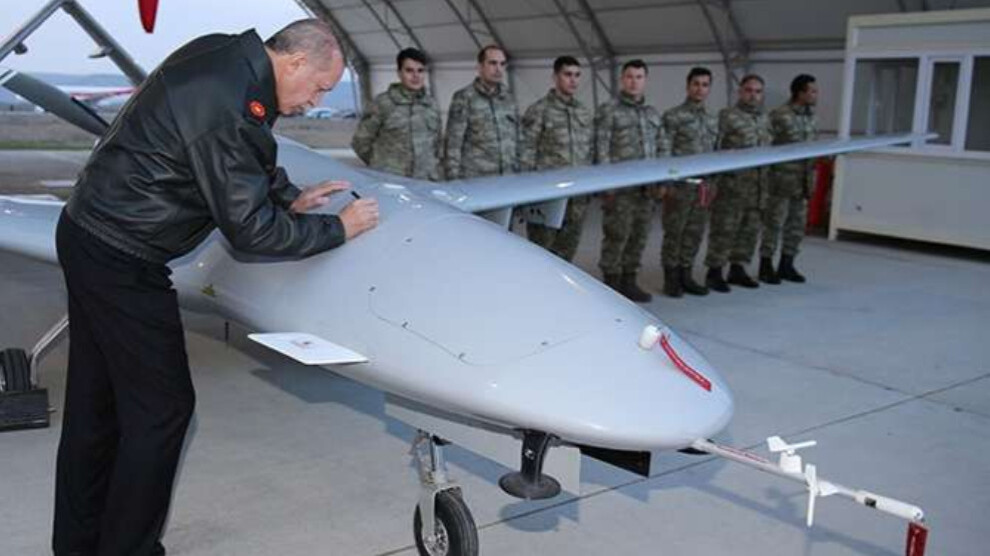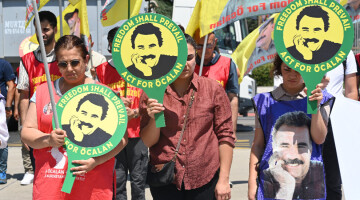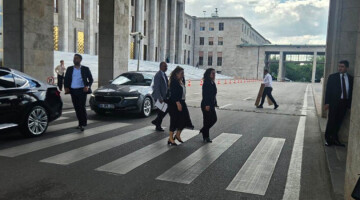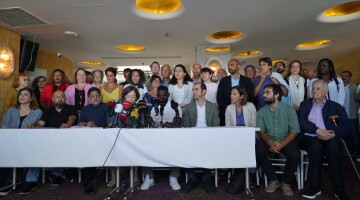Labour economist Özgür Müftüoğlu criticised the imposition of another burden for the sake of war industry on Turkey’s people, who are already unable to provide even the most basic needs, nutrition and shelter due to the crisis.
According to a bill submitted by the AKP to the Parliament to provide new resources to the Defence Industry Support Fund, credit cards with a limit of over 100 thousand TL will be charged an annual fee of 750 TL for the defence industry. However, the government allocated 529 billion liras for the ‘defence budget’ last year and approximately 971 billion liras in 2024. Economist Özgür Müftüoğlu spoke to ANF about the attempts to collect money from citizens with a new threat perception after the AKP's ‘Israel will attack Turkey’ discourse, while huge shares are allocated from the budget to the war economy.
Müftüoğlu noted that the ground for this regulation was prepared with an authorisation given to the President last spring and said the following: “Some regulations on this issue were also brought to the Parliament. This was a regulation on the authorisation of the President to add appropriations. There were regulations granting the President the authority to add appropriations in the event of insufficient appropriations for the modernisation of the Turkish Armed Forces and support for the defence industry. In other words, there was an effort to transfer resources to the war industry outside the budget. The arms industry is one of the areas where the AKP has provided the most investment and incentives, especially in the recent period. According to the Stockholm International Peace Research Institute's (SIPRI) Global Military Expenditure report, Turkey's defence industry increased by 37 percent from 2023 to 2024. In the 2028 targets, we see that a continuous increase is aimed for. Continuously promoting the arms industry has been on the Turkish government's agenda for a long time, and it has been doing so to a great extent. It is also proud of this. In the elections in 2023, it brought a warship and made a show with UCAVs and UAVs. To summarise, the AKP's armament expenditures in the recent period are too high.”
‘The resources are not enough, and the budget deficit is growing’
Özgür Müftüoğlu remarked that savings were made currently in many areas of public service due to the economic crisis, but spending on armaments increased. He continued: “There is an economic crisis and a so-called saving will be made. It is made in the transportation of students. They make the children walk. Savings are made in the cleaning of schools, children go to school hungry, or savings are made in health and so on. But there is no saving both in the pomp of the government and in the transfer of resources to capital. At the same time, there are no savings in the armament. These areas have always been excluded. Therefore, the resources are not enough, and the budget deficit is growing. They think of laying the burden on the people again. In order to legitimise this, I think, Erdoğan said in his speech in the Parliament that Israel would threaten Turkey by acting on the promised land. There is no basis for this. They mold the perception of a threat and say, ‘Should we be like Lebanon, Palestine, Syria?’, ‘Let's not be like that, then let's spend more on weapons and make investments’. For example, there is the issue of S-400s; the money has been paid and it just stands. On the other hand, there is the F-35 project, for which billions of dollars were paid. This money has always been made with resources saved from public services.”
A rule in capitalism: every supply creates its own demand
Müftüoğlu pointed out that the private sector and the capital gained from these policies and explained the following: “The state does not produce its own weapons, the private sector does, and these are profit-orientated places. Every resource you transfer to the arms industry actually returns to someone as profit. Today, for example, who makes the most profit? Baykar. Who is Baykar? Erdoğan's son-in-law. Therefore, resources are transferred to close circles in this way. You are putting another burden on people who cannot even provide their most basic needs, nutrition and shelter due to the crisis. Why? So that businesses and companies that already have huge profits can make even more profit. Secondly, there is a rule in capitalism that every supply creates its own demand. If something is produced, it must be utilised. For example, in order to get out of the 29 crisis, Roosevelt called for an armament campaign. Then World War II broke out. Therefore, this production creates demand, that is, it brings war along with it. War policies and war expenditures may seem like an economic issue or a foreign policy issue, but they are highly interconnected. As long as armament generates profit, neither wars nor war policies will disappear. In order to produce consent to this, they also call those who oppose this regulation ‘Armenians, Greeks or DEM Party supporters’. They are trying to do this by further increasing the polarisation among the people.”












